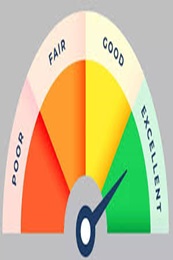What Happens When You Leave Your Savings Account Unused?
April 03, 2025

Imagine waking up one day to find that your hard-earned money is locked away and inaccessible. Sounds stressful, right? This is precisely what happens when you leave your Savings Account inactive for too long. Many people open multiple bank accounts for convenience but fail to use them regularly. If you’re guilty of this, you might unknowingly be setting yourself up for unnecessary hassle.
Let’s explore what happens to an unused Savings Account, why it’s a bad idea, and what you can do to avoid the pitfalls of account dormancy.
What Is a Dormant or Inactive Savings Account?
A Savings Account is considered inactive if there have been no transactions for over a year. If it remains inactive for two consecutive years, it is classified as a dormant account. Once an account becomes dormant, the bank restricts various banking activities, making it difficult for you to access your money without additional formalities.
To keep your account active, ensure you conduct transactions like deposits, withdrawals, or online/UPI fund transfers periodically.
Why You Shouldn’t Leave a Savings Account Unused
Here are a few critical reasons why keeping an account inactive is a financial mistake:
1. Penalty for Non-Maintenance of Minimum Balance
Most banks require a minimum balance in Savings Accounts. If your inactive account doesn’t meet this requirement, you’ll be charged penalties. Over time, these deductions can reduce your account balance significantly. If you have a Savings Account with Ujjivan, kindly ensure to check the Monthly Average Balance maintenance requirement and the penalty charged due to non-maintenance of the same here.
2. Restricted Account Access
Once an account is marked dormant, you lose access to key banking services, including:
- Cheque issuance
- ATM/Debit card transactions
- Internet and mobile banking
- Fund transfers
- Address updates or other modifications
Reactivating a dormant account requires Video KYC verification or KYC via bank branch, causing unnecessary hassle.
3. Missed Investment Opportunities
Leaving money idle in an unused Savings Account means you are losing potential earnings. Instead, you could invest in Fixed Deposits or Recurring Deposits, which provide better returns.
What Should You Do Instead?
- Transact at least once a year to keep the account active.
- Close accounts you don’t need to avoid unnecessary penalties.
- Set reminders to perform small transactions periodically.
Final Thoughts
Having multiple Savings Accounts can be convenient, but neglecting them can lead to penalties, restricted access, and lost financial opportunities. If you have an unused Savings Account, take action now—either close it or ensure you keep it active with periodic transactions. Keeping your finances in check today will save you unnecessary trouble tomorrow.
Secure your future with a Savings Account! Build your wealth effortlessly while enjoying attractive interest rates, instant access to your funds, and seamless digital banking. Whether you're saving for a dream, an emergency, or a better tomorrow, the right account makes all the difference. Open your Savings Account with Ujjivan today and take the first step toward financial freedom!
FAQs
1. What happens if I don’t use my Savings Account for a long time?
If you don’t use your account for over a year, it becomes inactive. After two years, it turns dormant, restricting transactions and requiring reactivation.
2. Can I reactivate my dormant Savings Account?
Yes, you can reactivate it by doing Video KYC or by visiting your bank branch with identity proof. Once KYC is done, you need to perform just one transaction to make your account active again.
3. Will my money be lost if my account becomes dormant?
No, your money remains safe, but you may incur penalties for non-maintenance of the minimum balance.
4. How often should I transact to keep my account active?
You should make at least one transaction per year (deposit, withdrawal, or online transfer) to keep it active.
5. Can I still receive interest on a dormant Savings Account?
Yes, interest will continue to be credited, but accessing the account will require reactivation.
6. Are banks allowed to close my dormant account?
Banks typically do not close dormant accounts on their own. However, accounts with zero balance may be closed as per bank policies.
7. Can a dormant account affect my credit score?
No, a dormant account does not impact your credit score unless you have unpaid dues or penalties linked to it.
8. What is the easiest way to prevent my account from becoming inactive?
A simple way is to set up auto-debits or make small transactions at least once a year.
9. Can I transfer my money from a dormant account to another account?
No, fund transfers are restricted in dormant accounts. You’ll need to reactivate the account before making any transactions.
Latest Blogs

What Happens When You Leave Your Savings Account Unused?
April 01, 2025
Imagine waking up one day to find that your hard-earned money is locked away and inaccessible. Sounds stressful, right? This is precisely what happens when you leave your Savings Account inactive for too long.

Unified Pension Scheme (UPS): Everything You Need to Know
March 29, 2025
The Pension Fund Regulatory and Development Authority (PFRDA) has announced the Unified Pension Scheme (UPS) will be operational from April 1, 2025.

What Does DPD Mean in CIBIL Report?
March 27, 2025
Your CIBIL report is like a financial passport that determines your credibility as a borrower. Whether you’re applying for a home loan, personal loan, or even a credit card, lenders will carefully review your CIBIL report before making a decision.

Are You Eligible for Section 80EE or Section 80EEA Tax Benefits?
March 26, 2025
Imagine this: Ravi, a young IT professional in Bangalore, has just booked his dream home. While planning his finances, he hears about tax benefits under Section 80EE and Section 80EEA but is confused about which one applies to him.

First Salary? 10 Smart & Fun Ways to Make It Count!
March 26, 2025
That magical moment has arrived—you’ve received your first salary! It’s not just money; it’s your hard-earned reward for months (or years) of effort, learning, and persistence.





